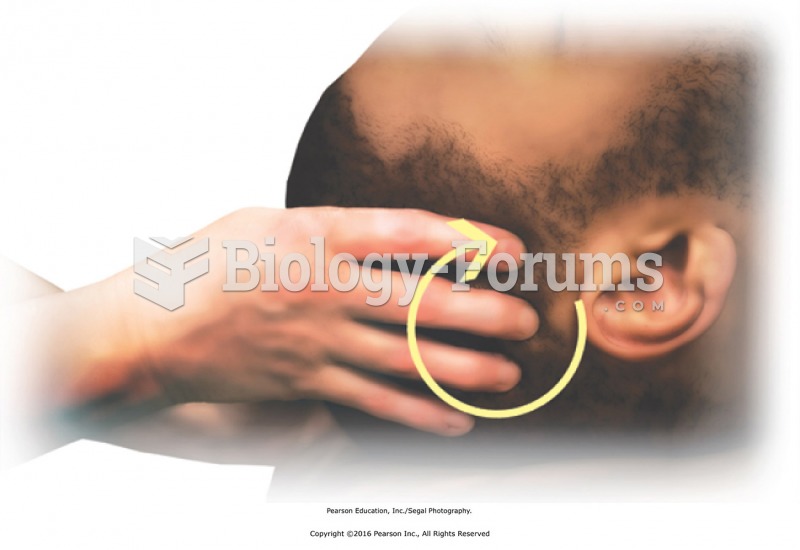|
|
|
According to the American College of Allergy, Asthma & Immunology, more than 50 million Americans have some kind of food allergy. Food allergies affect between 4 and 6% of children, and 4% of adults, according to the CDC. The most common food allergies include shellfish, peanuts, walnuts, fish, eggs, milk, and soy.
More than 4.4billion prescriptions were dispensed within the United States in 2016.
A headache when you wake up in the morning is indicative of sinusitis. Other symptoms of sinusitis can include fever, weakness, tiredness, a cough that may be more severe at night, and a runny nose or nasal congestion.
Never take aspirin without food because it is likely to irritate your stomach. Never give aspirin to children under age 12. Overdoses of aspirin have the potential to cause deafness.
Earwax has antimicrobial properties that reduce the viability of bacteria and fungus in the human ear.
 Circular friction around the ankle with the fingertips. Applying pressure with the fingertips, move ...
Circular friction around the ankle with the fingertips. Applying pressure with the fingertips, move ...
 Circular clockwise pattern. Gently lay a hand on the abdomen to establish contact. Apply effleurage ...
Circular clockwise pattern. Gently lay a hand on the abdomen to establish contact. Apply effleurage ...





